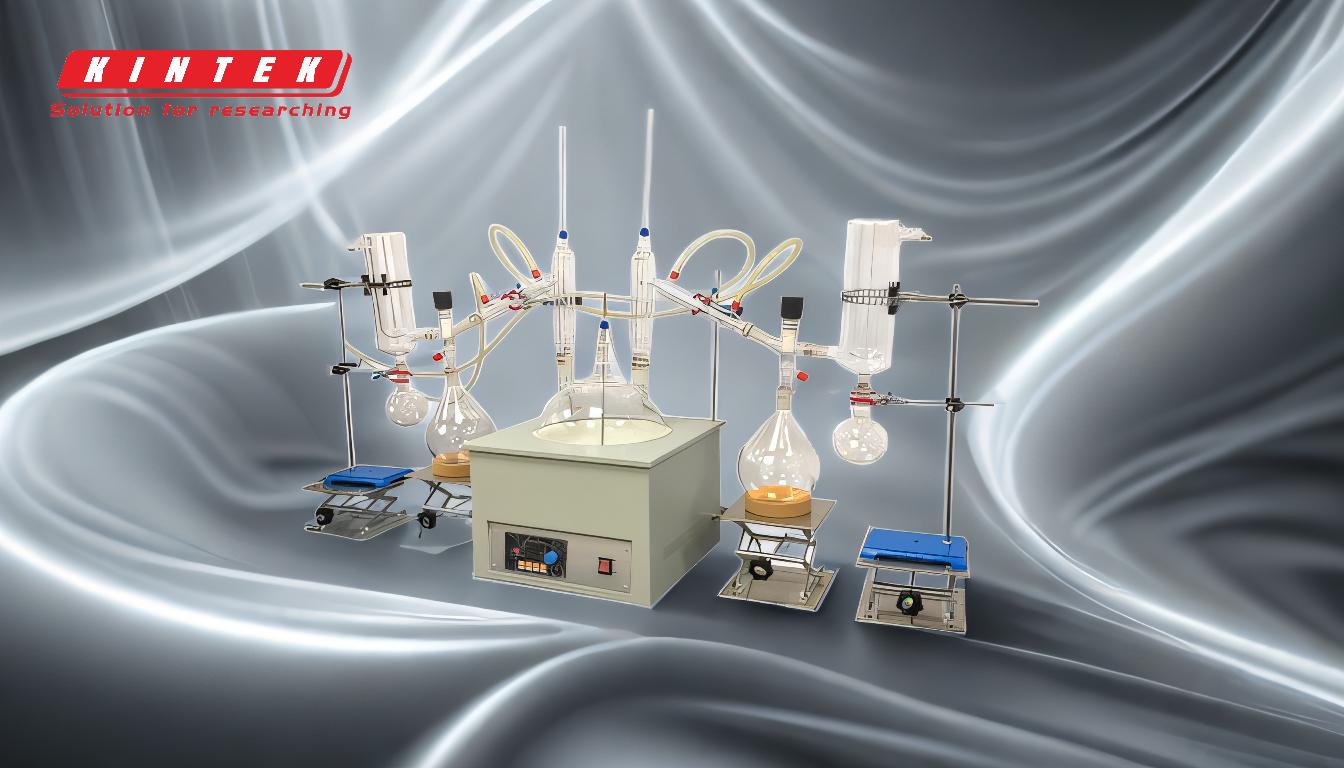Distillation is a process used to separate components of a mixture based on their differing boiling points. Decomposition in distillation refers to the unintended breakdown of chemical compounds during the heating process, which can occur if the temperature exceeds the thermal stability limit of certain components. This can lead to the formation of new, often undesirable, compounds that may contaminate the distillate or alter the intended separation. Understanding and controlling decomposition is crucial for maintaining the purity and efficiency of the distillation process.
Key Points Explained:

-
Definition of Distillation:
- Distillation is a separation technique that exploits differences in the boiling points of components in a liquid mixture.
- The process involves heating the mixture to vaporize the more volatile component, which is then condensed and collected as distillate.
-
Decomposition in Distillation:
- Decomposition occurs when chemical compounds in the mixture break down due to excessive heat, leading to the formation of new compounds.
- This can happen if the temperature during distillation exceeds the thermal stability threshold of certain components, causing them to degrade.
-
Causes of Decomposition:
- High Temperature: Excessive heat can cause thermal degradation of sensitive compounds.
- Chemical Instability: Some compounds are inherently unstable and prone to decomposition even at moderate temperatures.
- Impurities: The presence of impurities can catalyze decomposition reactions.
-
Effects of Decomposition:
- Contamination: Decomposition products can contaminate the distillate, reducing its purity.
- Altered Separation: The formation of new compounds can interfere with the intended separation process.
- Equipment Damage: Decomposition can lead to the formation of corrosive by-products, potentially damaging distillation equipment.
-
Preventing Decomposition:
- Temperature Control: Maintaining the distillation temperature below the decomposition threshold of the components.
- Use of Stabilizers: Adding stabilizers to the mixture to prevent or slow down decomposition.
- Vacuum Distillation: Reducing the pressure to lower the boiling points and minimize the risk of thermal degradation.
- Material Selection: Using equipment materials that are resistant to corrosion and chemical attack from decomposition by-products.
-
Applications and Considerations:
- Industrial Applications: In industries such as petrochemicals, pharmaceuticals, and food processing, controlling decomposition is critical to ensure product quality and safety.
- Laboratory Settings: In research and development, understanding decomposition helps in optimizing distillation processes and developing new separation techniques.
- Environmental Impact: Minimizing decomposition can reduce the generation of harmful by-products, contributing to more sustainable industrial practices.
By understanding and mitigating the risks of decomposition, distillation processes can be optimized to achieve higher purity and efficiency, ensuring the desired separation of components is achieved without compromising the integrity of the final product.
Summary Table:
| Aspect | Details |
|---|---|
| Definition | Breakdown of compounds due to excessive heat during distillation. |
| Causes | High temperature, chemical instability, impurities. |
| Effects | Contamination, altered separation, equipment damage. |
| Prevention Methods | Temperature control, stabilizers, vacuum distillation, material selection. |
| Applications | Petrochemicals, pharmaceuticals, food processing, and lab research. |
Need help optimizing your distillation process? Contact our experts today for tailored solutions!











